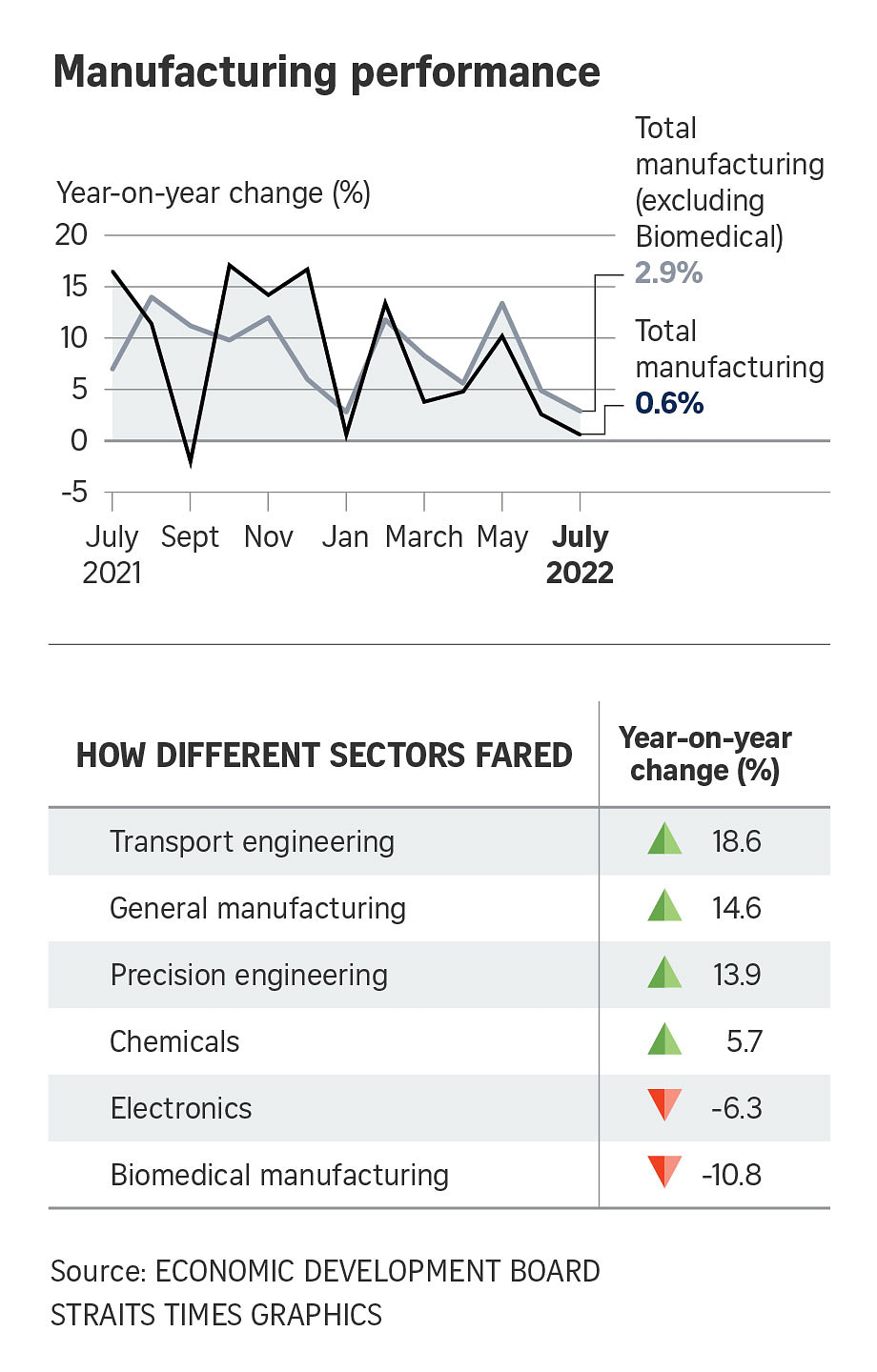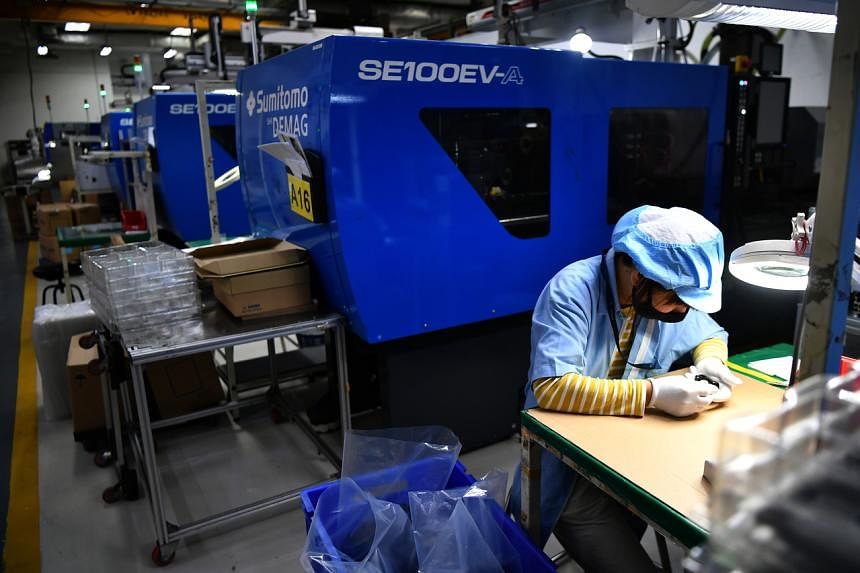SINGAPORE - Manufacturing output in Singapore rose by a meagre 0.6 per cent in July as lower export orders from China and global softening demand hit the electronics and biomedical sectors.
July's scant growth was also well below the 5.3 per cent increase forecast by economists in a Bloomberg poll. It comes after factory output grew a revised 2.6 per cent in June - also below analyst predictions.
Excluding the volatile biomedical manufacturing sector, output grew 2.9 per cent in July, according to data released by the Economic Development Board (EDB) on Friday (Aug 26)
The key electronics sector saw production decrease by 6.3 per cent in July, reversing the previous month's 2.3 per cent rise. Notably, output for semiconductors shrank 4.1 per cent, after contracting 2.6 per cent in June.
Ms Denise Cheok, an economist at Moody’s Analytics in Singapore, said July clocked a disappointing increase, far below expectations of a modest 2.3 per cent rise.
“Lower export orders from China, which is trudging on with its zero-Covid-19 policy, hit the electronics and biomedical sectors,” she said.
She added that the outlook for the second half of the year looks grim, with high inflation and geopolitical uncertainty weighing on global demand for Singapore’s products.
The infocomms and consumer electronics segment saw a decline of 11.7 per cent, while the computer peripherals and data storage segment fell 14.9 per cent. The lower production for both segments was due to softening demand, EDB said.
The other electronic modules and components segment contracted 19.7 per cent with lower export orders from China and South Korea, the trade agency said.
For the volatile biomedical manufacturing cluster, output contracted 10.8 per cent year on year, dragged down by the pharmaceuticals segment, which saw a 25.7 per cent drop.
Ms Cheryl Chan, senior vice-president for capital markets at digital securities exchange ADDX, said a significant challenge is the uncertain global economic outlook, especially for the United States and Europe.
She said: “The general sense of anxiety has resulted in lower consumer spending on goods like cars, phones, computers and other electronic goods, which would in turn reduce demand for semiconductor chips and other related exports produced in Singapore.”
But despite the gathering economic headwinds, there are still reasons to remain cautiously optimistic. For one thing, the pick-up in international travel has contributed to the rise in transport engineering output, Ms Chan added.
Transport engineering saw the biggest growth of all the clusters, with output surging 18.6 per cent. The marine and offshore engineering segment expanded 36.2 per cent due to a higher level of work done in ship repair and offshore projects.
The aerospace segment grew 15.8 per cent due to higher demand for aircraft parts from the United States, and more maintenance, repair and overhaul jobs from commercial airlines with the easing of global air travel restrictions.
Precision engineering output rose by 13.9 per cent, buoyed by the machinery and systems segment, which expanded by 21.9 per cent due to higher output of semiconductor-related equipment.

Chemicals output grew 5.7 per cent while general manufacturing rose 14.6 per cent.
Maybank analysts Chua Hak Bin and Lee Ju Ye said manufacturing growth is expected to stagnate and dip below zero for some months in the rest of this year.
The manufacturing downturn and slowdown in trade-related services will weigh on economic growth in the second half, with the risks of a technical recession rising with the sudden and sharp downturn in electronics, they added.
OCBC Bank chief economist Selena Ling said: “The question going forward is whether Singapore’s recent relaxation of Covid restrictions could mean a faster pace of recovery in international leisure and business travel, especially going into the year-end peak holiday season, to mitigate the sharper manufacturing slowdown.”


